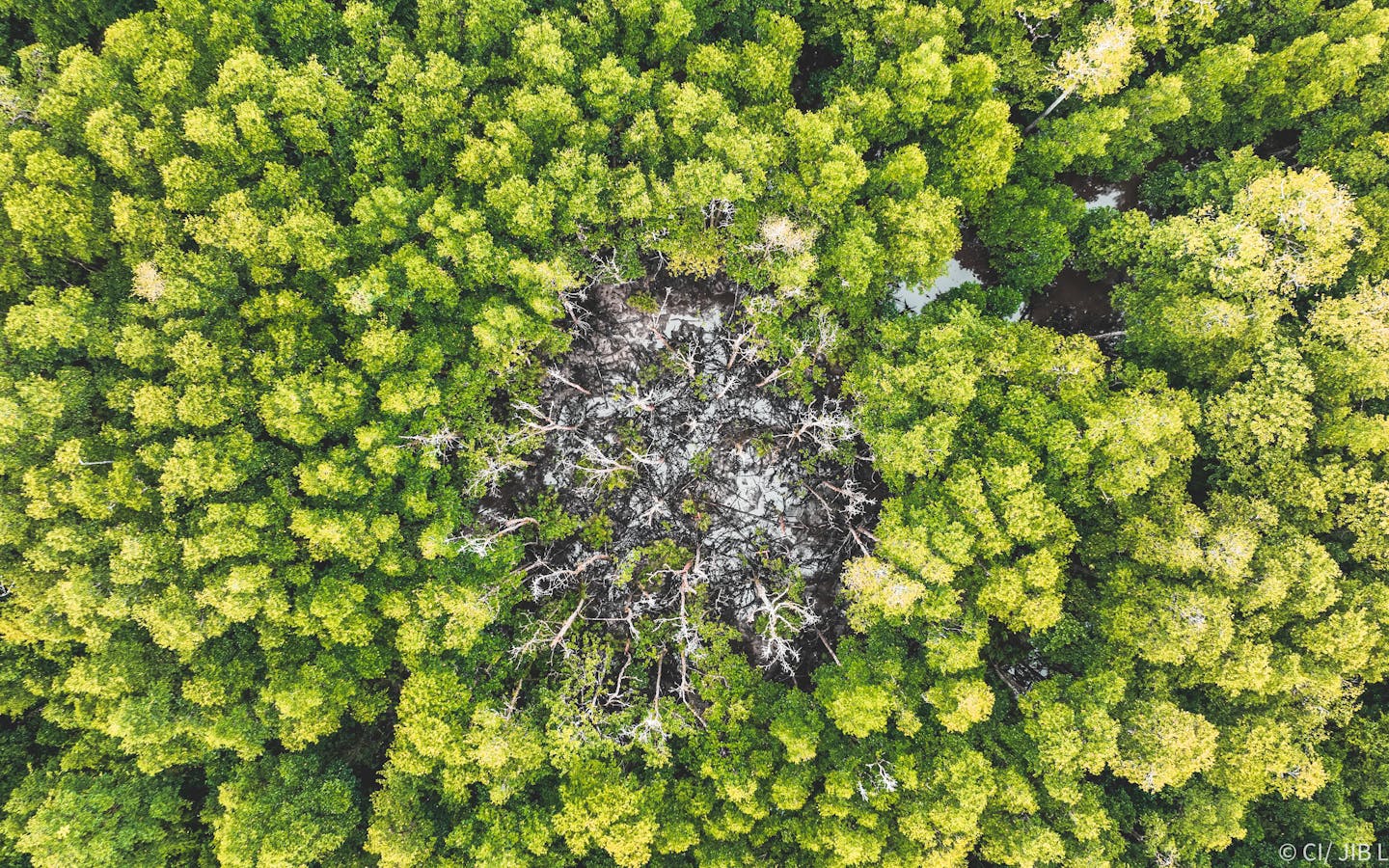Whether or not we hear the sound of a felled tree, its absence has a global impact. Every year, billions of trees are cut down, releasing more carbon into the atmosphere and pushing us closer to climate breakdown. This means that every single acre of forest that we protect matters. Conservation International is working worldwide to protect forests so that they can continue to absorb and store carbon and prevent climate change.
Join us, acre by acre, as we shape a future of thriving forests, teeming with life.
Acre by acre
It’s Time to Turn Over a New Leaf
Conservation International approaches all our programs with a simple idea: People need nature to thrive. We work shoulder-to-shoulder with local and Indigenous communities in some of the most remote places on Earth, helping them to protect nature and build sustainable livelihoods.
More than a third of the world’s carbon is found on lands managed by Indigenous peoples. We support Indigenous peoples and local communities — stewards of more than 30 percent of the world's remaining natural landscapes — in their efforts to protect their territories.
HOW MANY ACRES WILL YOU PROTECT?
For just $25, you can protect an acre of forest. Every tree that we protect can make a significant difference for people, climate and wildlife — helping to combat climate change and conserve vital habitats for countless species.

